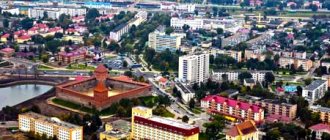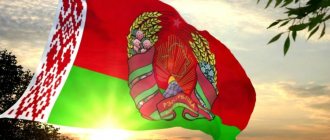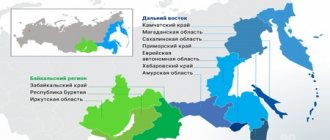For those who decide to move to live in Russia, one of the reasons, in addition to economic ones, is the presence of close relatives in the country, who will undoubtedly help with settling in a new place. Today there is no single approved state program that would regulate the acquisition of Russian citizenship during family reunification, but this issue is regulated by separate legislative acts. All of them are aimed at ensuring the unity of each cell of society as the basic principle of family law.
The process of obtaining Russian citizenship
Russian citizenship is the goal of many foreigners who have arrived in the country and want to legally live and work here. To become the owner of a passport with a double-headed eagle on the cover (this is what indicates the status of a Russian citizen), you need to overcome many obstacles and go through the following stages provided by law:
- entry into the country and registration with migration authorities;
- obtaining a temporary residence permit;
- obtaining a residence permit;
- obtaining citizenship.
It takes 7 years to complete all procedures according to the generally accepted algorithm. In this case, it is necessary to fulfill a number of requirements, such as knowledge of the language, availability of sources of income, continuous residence under a residence permit for at least 5 years, renunciation of previous citizenship, and also undertake an obligation to comply with the Constitution of the Russian Federation.
How to obtain a residence permit?
Russians and residents of other countries can obtain a residence permit in the country in several ways. Each of them has its own advantages and disadvantages.
When purchasing real estate
Purchasing housing in Italy, as in any other country, does not give the right to obtain a residence permit, but can be an advantage when reviewing documents.
real estate transactions involving foreign citizens are carefully controlled by the state.
Permission to purchase both movable and immovable property can be obtained by holders of an international agreement with Italy, the text of which contains a corresponding note, or holders of a residence permit.
A person who has become the owner of a home in Italy can apply for a visa with the right to stay in the state for up to 90 days in 6 months.
For investment
The Italian government is favorable to investors and provides them with a visa in case of the following investments:
- to Italian companies (from 1 million euros for a period of 2 years);
- in securities owned by the state (from 2 million euros for a period of 2 years);
- to startups registered in Italy (from 500 thousand euros for a period of 2 years);
- from 1 million euros as donations to education, science and culture of the country.
Within 8 days from the date of entry into the country, the investor must submit an application for a residence permit. The document is issued for 2 years, after which it can be extended for another 3 years.
Extension of a residence permit is allowed if a foreigner who entered the country has made investments, the validity of which will continue after the end of the period of the issued document.
For financially independent persons
The holder of this type of residence permit does not have the right to apply for permanent residence after 5 years of stay in the country. But it is quite possible to obtain citizenship after 10 years.
The minimum income of the applicant must be 31 thousand euros per year. When moving with family, this amount increases by 20% for a spouse and 5% for each dependent child.
Regardless of the source of income, taxes will have to be paid to the Italian treasury.
For family reasons
Foreigners wishing to reunite with loved ones must provide the following documents:
- confirmation of relationship (with spouses, parents or children);
- certificate of income sufficient to support dependents;
- availability of housing (except in cases of reunification with children).
A residence permit is issued for the same period as that of a foreigner’s family member.
Education
You must provide a certificate indicating enrollment in an educational institution and a receipt confirming payment for courses or training.
A student residence permit gives the right to work no more than 20 hours a week.
Marriage
A residence permit is issued on the basis of a certificate of official registration of marriage with a person with Italian citizenship and an application on behalf of both spouses. After receiving the document, you can join the labor exchange or get a job yourself, study at universities, or seek medical help.
Refugee status
Italy is ready to accept people who are persecuted in their homeland and are seeking asylum. But it is necessary to understand that a positive decision is not always made. According to statistics, about 61% of applications are approved.
The application for international protection is considered by the Territorial Commission. Within three days, a response is received about the assignment of refugee status or the rejection of the request. Refugees are asked to submit a request for a residence permit at the questura. After this, you can send the necessary documents by mail.
The issued residence permit will be valid for 5 years, extension is possible if necessary.
Work activity
A foreigner will have to search for work while in his home country. If the employer is interested in the candidacy of the applicant, he sends a request to the Federal Labor Agency to obtain permission.
- presence of an invitation from the employer;
- a contract concluded with an Italian organization;
- availability of housing and finance for the first time.
Immigrants are usually hired for positions for which there are no applicants among local residents. In addition, employers are interested in attracting certified specialists.
Interesting How to get a temporary residence permit after temporary shelter
Starting a business
To start a business in Italy, you can buy out part of the enterprise or open your own business. To obtain a residence permit, you will need to show a sales contract or a detailed business plan. In addition, you must meet the following requirements:
- availability of a deposit in a bank in Italy in the amount of 25 thousand euros;
- employment in an open company of 5 or more citizens of the country;
- a businessman’s income in his home country should not be less than 14 thousand euros per year.
Italian entrepreneurs are not required to have a minimum financial turnover. But at the same time, a fixed amount must be transferred to the treasury, even if there is no profit at all.
Simplified acquisition algorithm
For some categories of citizens, a simpler procedure for obtaining the status of a Russian citizen is provided. It provides, first of all, for a reduction in the required qualification period, and sometimes entire stages are “skipped” (for example, participants of the State Program for the Resettlement of Compatriots do not need to obtain a residence permit).
Grounds for admission to citizenship on preferential terms:
- family ties (if parents, children, spouses are Russians),
- education (if the Russian diploma was received before July 1, 2002);
- labor activity (if a foreigner works in a certain field or conducts his own business in the Russian Federation);
- historical past (previously had citizenship of the USSR or the person was born on the territory of the former Union);
- international treaties (for example, between the Russian Federation, the Republic of Belarus, the Republic of Kazakhstan, the Kyrgyz Republic);
- personal merits to the Russian Federation (for example, a WWII veteran),
- difficult life circumstances (refugees).
For each case, additional requirements and conditions are provided.
Provisions of the Law on Citizenship and grounds for family reunification
Collecting the necessary documents and confirmation from government authorities takes a lot of time, and more than one year will pass before the applicant achieves his goal. The standard procedure can take up to seven years for a foreigner.
Nevertheless, there are opportunities for husbands and wives, parents and children of Russians to speed up the process of obtaining Russian citizenship and the desired reunification with their loved ones. These issues are regulated by Part 14 of the Federal Law “On Citizenship of the Russian Federation” and the provisions of the Family Code of the Russian Federation.
Obtaining Russian citizenship allows loved ones to be together all the time
According to the law, the following categories of foreigners have the right to a simplified procedure for obtaining Russian citizenship and, therefore, the opportunity to reunite with loved ones:
- children of citizens of the Russian Federation;
- persons married to a citizen for at least three years;
- disabled and incompetent parents of an adult citizen;
- persons who received professional or higher education in relevant educational institutions after 2002;
- participants in the state program for the resettlement of compatriots;
- veterans of the Great Patriotic War.
Legislative basis for obtaining citizenship upon family reunification
The concept of “family reunification” when resolving issues of citizenship is used today as a basic principle that ensures the preservation of the unity of the social unit. In this way legal rights are ensured:
- minors – to be cared for by their parents and stay with them;
- adults – to a simplified algorithm for legalizing their residence with close relatives.
These rights of foreign citizens, like many others, are enshrined in the following legislative acts:
- Article 14 of the Federal Law of May 31, 2002 No. 62-FZ "" describes the grounds for acquiring citizenship according to a simplified scheme - in particular, paragraphs 1 (a) and 2 (b, c, d, e) deal with family ties , and paragraph 6 is entirely devoted to issues of civil status of children;
- Federal Law of July 25, 2002 No. 115-FZ “” - this document regulates the procedure for the stay of foreigners on the territory of the Russian Federation, the procedure for obtaining permits, etc.;
- – the legal act describes the main principles and views of the state regarding family relations, as well as the rights and obligations of their main participants (spouses, children, parents, etc.). Family unity is recognized as the fundamental goal of state policy in this direction.

Citizenship Process
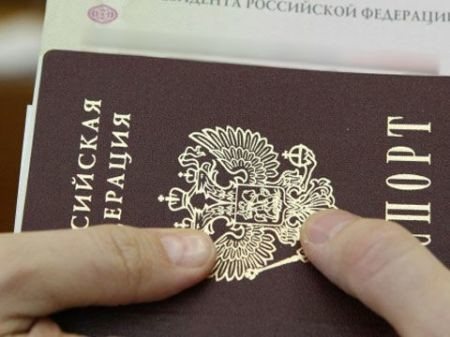
To approve an application for assignment of civil status on a general basis, migrants must issue a temporary residence permit and then a residence permit. A Russian passport is issued to a candidate with permanent registration in one of the regions of the country. For family members moving to the Russian Federation to reunite with relatives, a simplified procedure is provided:
- citizenship is assigned in a short time - after 1 year of residence in the country;
- the period for obtaining the status of a disabled person is up to 2 years;
- There is no need to pass an exam on Russian language proficiency.
When entering the country, the candidate must submit a special document. We list the rules for filling out a notice of arrival of a foreign citizen:
- the form must be filled out by hand or printed using printing technology;
- there should be no empty lines;
- The use of abbreviations and abbreviations is prohibited.
All data is entered correctly and cannot contain factual errors.
Registration of temporary residence permit
Such permission is registered after arriving in the state for a long period. The usual processing time for an application is 2 months. During the entire period, the candidate lives in the Russian Federation using a temporary certificate.
Obtaining a residence permit
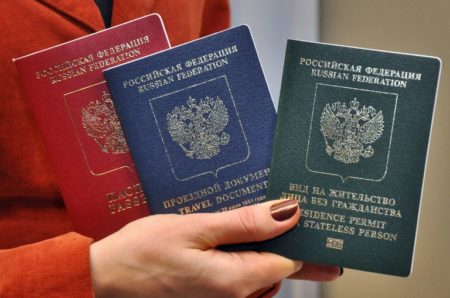
A residence permit is granted to an immigrant who has lived in the constituent entities of the Russian Federation for 5 years. After being assigned the status, a citizen has the right to get a job without special permission and freely cross the border in both directions. An application for a residence permit is reviewed within 6 months. The new status will be valid for 5 years.
Acquiring citizenship
The resettlement program is aimed at assigning Russian citizenship to foreigners. To obtain status, a migrant must:
- live in the Russian Federation for 10 years. Under preferential conditions, the period is limited to 1-2 years;
- have a permanent source of income;
- pass an exam to determine your level of Russian language proficiency.
Testing is not mandatory for people of retirement age, people who came to study at local universities and participants in the family reunification program.
Family reunification program in the Russian Federation: myths and reality
On thematic forums on the Internet you can find many questions from foreigners regarding how to obtain the status of a Russian citizen under the family reunification program. And lawyers unanimously answer that such a program does not exist in principle. The possibilities of its approval were widely discussed, but were never embodied in a single document.
How, in this case, is Russian citizenship obtained through family reunification and what benefits can one expect?
All the nuances are described in the legislative acts we mentioned earlier. We will briefly dwell on the most common examples.
Parents and children
Reunification of children and parents is one of the grounds for obtaining Russian citizenship. However, there are caveats here.
Children who have:
- both parents are Russian;
- one parent is Russian. In this case, the consent of the second parent (foreigner or stateless person) is required.
Adult children can apply for Russian citizenship if their Russian parent permanently resides in the Russian Federation.
A father or mother can apply for citizenship through a Russian child if:
- they are disabled and their adult capable children will provide for their old age (disability);
- a minor child does not have a second parent (died, deprived of parental rights, etc.);
- an adult child is declared incompetent, but the other parent is not.
These are just general principles; for each specific case, you need to consult a lawyer.
Spouses
Another compelling “family” argument for obtaining Russian citizenship is a marriage with a Russian woman/man.
The mandatory period of stay in the country under a residence permit is reduced from 5 to 3 years.
In this case, two main conditions must be met:
- prove the truth of the marriage (that it was concluded not just to obtain a passport) - for this, the spouses are required by law to live together for at least 3 years;
- You must live in Russia.

For whom preferences have been introduced for obtaining Russian citizenship for family reunification
The Russian Family Code stipulates that a family is:

- spouses and children;
- parents, adoptive parents and guardians (if there is a document confirming guardianship or adoption);
- Grandmothers and grandfathers;
- grandchildren and granddaughters;
- brothers and sisters, including step-brothers (from different parents);
- aunts and uncles.
But not all persons who are related to a foreign citizen are provided with special conditions.
Obtaining a Russian passport and family reunification in a simplified version according to migration legislation is provided only for close relatives - spouses, children and parents (guardians, adoptive parents) .
Requirements for applicants
Requirements for applicants for a Russian passport based on family ties depend on the grounds that the foreigner expects to rely on.
First of all, applicants must be of legal age and legal capacity; Adults apply for children under 18 years of age.
In any case, you will need:
- permanent registration;
- documentary evidence of the legality of stay in the country (TRP/or residence permit);
- livelihoods;
- knowledge of the Russian language, Russian history and basic laws;
- renunciation of previous citizenship.
Permits
Permit marks (PRP) or documents (PRP), which confirm the legality of residence in Russia, are issued to relatives of Russian citizens with certain preferential nuances.
For example, if a foreigner’s child has Russian citizenship, then the parent may apply for a temporary residence permit outside the allocated quota. Government restrictions will not become an obstacle to obtaining this document for Russian husbands (wives).
There are exceptions in the process of obtaining a residence permit. For example, you do not need to obtain a temporary residence permit in advance if a relative who arrived in Russia:
- is a citizen of the Republic of Belarus;
- recognized in accordance with the established procedure as a native speaker of the Russian language;
- highly qualified specialist.
IDP status
Who answered you such nonsense and what was the question asked? And what is written on the status in black and white is Issued by the Representative Office of the Ministry of Internal Affairs of the Russian Federation in Turkmenistan. And below is the official seal.
Zhorik, Vladaya, Danko and reacted to this
- 137 messages
- IDPs
- User
According to this document, can I apply for a temporary residence permit upon arrival without quotas according to the law? who left under this document?, and what is meant by the term “migrant status” in this topic? Thank you
- IDPs
- Advanced user
- 457 messages
7 minutes ago, Alexander9494 said: This is DISPLACEMENT STATUS, you can apply for a temporary residence permit outside the quota Alexander Maltson reacted to this
- 137 messages
- IDPs
- User
BESEDKA (resettlement from Turkmenistan)
Because the demand for specialists there is high.
Our people are specialists and only “clap their hands.”
According to statistics, the Far East approves of almost the majority of those wishing to get to them via the border crossing point. I think there’s no problem with work there either, and the lifts are good.
Vladaya reacted to this
- Advanced user
- 480 messages
- IDPs
Daniel Barton, Edin O'Dromex, serega1960 and reacted to this
- IDPs
- 1,490 messages
- Abstract mind
- City: ☭ road
8 minutes ago, Alyonka251284 said: It’s a cool phrase)) You couldn’t have said it better) Well, in general, I think the president will test these powers manually and gradually make proposals to change the law on citizenship.
Although it won’t be our turn from TM any time soon.
Interesting Life in Spain
Procedure
The procedure for acquiring citizenship through relatives depends on its grounds. Its algorithm involves going through the main stages, but the time frame is reduced. In some cases, it is not necessary to go to Russia, but to begin the legalization procedure on the territory of the Russian Federation in your homeland.
Package of documents
The set of documents that must be collected in this case differs slightly from the standard one.
Additionally, you will need to prepare papers that prove:
- degree of relationship (marriage/birth certificate and attached passports of Russian relatives);
- in the case of parents – state of incapacity (pension certificates, medical reports);
- in the case of incompetent adult children who need guardianship, the degree of incapacity (court decision, medical opinions);
- in the case of children - the right to use the “right of blood” (passports of Russian parents), evidence of the absence of the second parent (death certificate, court decision on deprivation of parental rights / declared missing).
Certificates and certificates in a foreign language are translated into Russian, copies, if necessary, are notarized.
Responsible authorities
The government authorities to which you must contact to submit an application are determined by the migrant’s place of residence.
It's easiest for those who are in Russia. In this case, the issue is dealt with by the regional (at the place of registration of the foreigner) departments of the Main Directorate for Migration Issues of the Ministry of Internal Affairs of the Russian Federation.
If a foreign relative lives abroad, you need to submit an application to the Russian diplomatic missions in this country, that is, to the relevant department of the consulate or embassy.
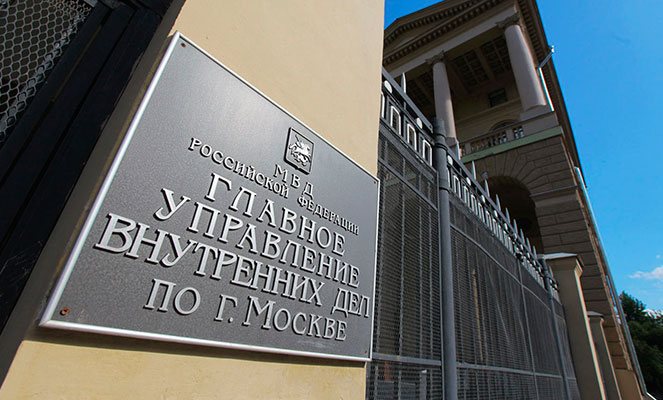
Cost and duration of the procedure
The cost of obtaining Russian citizenship is officially 3,500 rubles - this is exactly the state duty provided for the provision of this service.
In each specific case, the following expenses are added to this amount:
- state duty for obtaining a temporary residence permit – 1,500 rubles;
- state fee for obtaining a residence permit – 3,500 rubles;
- Russian language testing (if necessary) – 5,500 rubles;
- notarized translation and certification of papers – 2000-10,000 rubles.
These are the main expenses. Naturally, they will be different in each situation.
The time period from crossing the border to receiving a passport ranges from 2 to 5 years. As for the period for consideration of the application, in most cases it is 6 months, because the simplified procedure is most often used.
Commissioner for Human Rights
When people leave their homes and become refugees, many of them also have to leave their families. This causes additional suffering, aggravating the trauma of expulsion. Once refugees are safe in Europe, reunification with their family members becomes their top priority. It is easy to imagine how terrible their situation must be without such an opportunity. While in Europe, thousands of refugees and persons with other forms of international protection unfortunately find themselves in a situation of prolonged separation from their spouses, children and other relatives. This is due to the introduction of increasingly stringent laws and policies restricting family reunification, which are often inconsistent with human rights standards and therefore need to be urgently reviewed.
Family reunification is a refugee right
When states adopted the UN Refugee Convention in 1951, they emphasized in the Final Act that family integrity is a fundamental refugee right. The European Court of Human Rights also recognizes the importance of family integrity for refugees, while emphasizing that family reunification is the most important factor in the return to normal life of those who have fled persecution. In one of its decisions, the Court explicitly stated that the decision-making process must guarantee flexibility, speed and efficiency in ensuring the right of refugees to respect for their family life under Article 8 of the European Convention on Human Rights (Tanda-Muzinga case). v. France, 2014).
Article 19(6) of the European Social Charter (ESC) provides for the obligation of Contracting States to facilitate family reunification of migrant workers who are legally resident in the country. The European Committee of Social Rights (ECSR) has noted that this also applies to refugees. This approach requires states to “take a liberal approach to the implementation of the right to family reunification” (ECSR, Conclusions, 2015).
In addition, the UN Convention on the Rights of the Child provides for specific obligations of states in matters of family reunification affecting the rights of minor children. The Convention requires States to protect children from being separated from their parents against their will (Article 9) and to ensure that an application by a child or his parents to leave the country for the purpose of family reunification is dealt with “in a positive, humane and expeditious manner” (Article 10(1)).
All European countries have laws and policies that allow migrants, including refugees, to bring family members from abroad if they meet certain criteria. Such conditions often imply that a person already in Europe must have a certain income and suitable living conditions. If these requirements cannot be met, family reunification is impossible. However, it is assumed that a person applying for family reunification can exercise his right by traveling abroad and reuniting with his family members in another place. This situation is impossible for refugees. The threats they face prevent them from returning to their country to reunite with their families. Therefore, the most difficult requirements for family reunification are often not applied to them.
European policies preventing the reunification of refugee families
All of the above is just a theory. In practice, many European countries, in response to the migration policy crisis of 2015-2016, have adopted new laws and policies that make it significantly more difficult for refugees to reunite families and, in particular, for persons enjoying subsidiary protection (a status that is largely temporary ).
In June of this year, I published an issue report on restrictions on the right to family reunification. In this research, I found that some countries, such as Sweden and Germany, have suspended the ability of persons with subsidiary protection to apply for family reunification. Other countries, such as Denmark, Austria and Switzerland, have introduced a three-year waiting period before such individuals are allowed to apply for family reunification. Such suspensions and waiting periods contribute to the separation of families for many years, especially taking into account the fact that the family reunification procedure cannot begin before the person concerned has been granted asylum, which is itself a lengthy process. I have also noted that policies that disadvantage persons with subsidiary protection may be unreasonable and discriminatory. Often, assumptions that persons with subsidiary protection remain in Europe for a short period of time do not reflect reality. On the contrary, when conflicts in the world drag on, their temporary situation often becomes permanent.
However, persons with full refugee status may also suffer from restrictive policies. For example, persons who have been recognized as refugees are only given the opportunity to apply for family reunification for a very short period of time. In some countries, if refugees do not start the process within the prescribed time limit, the subsequent family reunification procedure becomes more difficult. I also identified other restrictions on individuals' right to family reunification, including a narrow definition of family members eligible for reunification. Due to such restrictions, some families may remain separated, for example: children under the age of 18 have the right to family reunification, but a child who has just turned 19 no longer has this right. There is also significant variation across Europe regarding the need for family reunification with elderly dependent family members, such as elderly parents or grandparents. The above issue paper also explores many other barriers.
The need to understand the long-term consequences of family separation
Unfortunately, the issue of family reunification has ceased to be seriously discussed due to short-term political considerations. This became evident in the context of the strong reaction that followed from some states to my recommendations to lift restrictions on family reunification. During the round table that I organized in June of this year with expert NGOs in this field, the difficulties in addressing this topic were also discussed. Calls by experts to respect the right to family reunification were often met with harsh rhetoric and hostility. This approach has been noticed not only in countries whose governments have made anti-immigration statements, but also in states that have been largely open and welcoming to refugees, including Germany and Sweden. Too often, governments focus on the narrow issue of reducing the number of new migrants entering the country, which in turn implies that lifting the ban on family reunification is undesirable.
This numbers game is a misguided and short-sighted approach not only for refugees and their families, but also for host states. The integration of refugees and other asylum seekers into our societies has become a key political and social issue. New flows of migrants in 2015-2016 further contributed to the need to pay attention to the issue of integration. Many of the newcomers will remain because peace and security in their countries are still not ensured. Consequently, states should reconsider their approach to the issue of family reunification.
Long periods of separation from their families have a huge negative impact on refugees. Lack of information about family members, often left in dangerous situations in their home countries or deprived of livelihoods, can leave refugees with extreme stress, sleep disturbances and depression. And this hinders their integration into the new society, for example, learning a language and mastering the labor market. Barring refugees from joining their family members is an ill-conceived policy that negatively impacts their efforts to integrate into their new society.
Family separation has particularly negative consequences for children in Europe as unaccompanied minors, or outside the European continent awaiting reunification with parents who have moved to Europe. We need to think hard about the “lost generation” of Syrian children who are displaced in their own country or living as refugees in neighboring countries. Many of them have spent years waiting for their schooling to resume. For them, every day they lose due to the inability to reunite with their families in Europe is valuable.
Denial of the right to family reunification also contradicts the state interests of ensuring organized migration and preventing illegal flows of migrants. By restricting legal routes to Europe, including by not respecting the right to family reunification, states are leading desperate people seeking to be with their families to seek alternative, illegal and dangerous routes to Europe, including illegal crossings by sea.
Making the right to family reunification a reality
Given the importance of refugee family reunification, political debate about the possibility of lifting certain restrictions on the exercise of the right to family reunification is encouraging. I recently had useful discussions with representatives of national human rights institutions, many of whom are concerned about restrictions on the right to family reunification. Some of these structures even presented their legal and practical recommendations to the governments of the respective countries. NGOs and other groups, such as religious groups, are also very influential in ensuring that policymakers understand the consequences of restrictions on refugees. For example, legislative bodies in Switzerland and Germany have held public discussions on the need for, as well as the consequences of, imposing restrictions on the issue of family reunification of refugees. In Germany, this issue became the subject of coalition negotiations following the election results. However, it is difficult to make significant changes if you continue to play with the numbers. This is why, in my opinion, it is so important to achieve change by challenging restrictions in the courts and holding successful trials. During the above-mentioned roundtable with expert NGOs, it was interesting to note that research is already being carried out at the national level regarding unreasonable restrictions, and the possibility of using European human rights law or EU legislation to overcome these restrictions.
It seems to me that the results to date have been mixed. For example, the Danish Supreme Court is due to rule in the near future on the different rights afforded to refugees and persons with subsidiary protection, after the Eastern High Court of Denmark found that there was no discrimination in this situation. Last month in Germany, the administrative court of Wiesbaden found that the time limits preventing a Syrian family (under asylum proceedings in Greece) from reuniting with one of their children, who is a minor and is seeking asylum in Germany, violate the time limits provided for in the Dublin regulations." In the United Kingdom, the reunification of migrant children from the Pas de Calais camp with family members across the English Channel has been the subject of a number of court cases. The path to judicial resolution of problems associated with family reunification needs to be further explored, although it is long and exhausting. It will take time for legal challenges to the newly adopted restrictions to reach the highest national and international courts.
European states should not continue to restrict the family reunification rights of refugees, pending judicial overturning of such decisions. If European states are serious about their commitment to protecting families, they must act now. Prolonged family separation creates additional difficulties for refugees and their families, while barriers to their integration and the creation of incentives for illegal migration also negatively affect the host societies themselves. With all this in mind, I call on all European states to:
- review laws and policies that differentiate between refugees and persons with subsidiary protection in the area of family reunification;
- include broad definitions of family members subject to reunification in your laws and policies;
- strengthen policies to support children in the family reunification process;
- end long waiting periods and suspension of the right to apply for family reunification;
- remove other barriers, including short application deadlines and age restrictions, and provide practical measures to ensure rapid and efficient access to family reunification procedures.
Nils Muižnieks
useful links
- Commissioner for Human Rights, Ensuring the right to family reunification for refugees in Europe and summary, 2017
- Commissioner for Human Rights, Time for Europe to push for migrant integration, 2016
- European Committee of Social Rights, Conclusions 2015, paragraph 21 “Rights of refugees under the Charter”
- EU Agency for Fundamental Rights, Family Identification and Family Reunification, 2016
- Red Cross/ECRE, Escape Interrupted: The Reality of Separated Refugee Families in the EU, 2014
- UNHCR, A New Beginning: Refugee Integration in Europe, 2013
Cases when citizenship will not be given
Not all foreigners have the opportunity to obtain the status of a Russian citizen.
A request may be denied to an applicant who:
- provided false information about himself;
- attached false documents confirming the grounds for admission to citizenship;
- is a civil servant or military officer in another state;
- has been convicted and has not served his sentence (or is serving it at the time of filing the application);
- is wanted;
- in other countries has committed a crime that is charged as a serious crime;
- opposed the Russian state system or participated in military operations against Russian troops.
Reviews
Oksana, 36 years old: “We moved to Russia from Kazakhstan under the program of reunification with relatives in 2012. Here we have elderly parents who require constant care. At first everything was fine, I was given a temporary residence permit, and I started working, but unofficially. And then, when obtaining a residence permit, they demanded that there be income, but there were 72 thousand in the savings book! And this amount should be for each family member. And four of us arrived. Of course, this is an imperfection of the legislation. It was difficult to deal with the situation. We saved from our parents' pension and our salary. Now, in the fourth year, we are waiting to receive citizenship.”

Having a status confirming belonging to the Russian Federation provides the opportunity to:
- legal employment;
- business;
- free medical care;
- travel to some countries without a visa;
- hold public office;
- participation in elections;
- using an optimal taxation system.
After obtaining citizenship, the question of where to move to live in Russia ceases to be relevant for a foreigner, since these preferences can be used in any locality.
The legislative framework
The procedure for acquiring honorary status, which provides protection under Russian jurisdiction in connection with family reunification, is regulated by Federal Law No. 62 of May 31, 2002. Moreover, this legal act provides for the possibility of obtaining citizenship under a simplified scheme. The issue of consolidating an applicant for Russian residency with his relatives is also regulated by the Family Code, which emphasizes the importance of strengthening ties between children and parents, wives and husbands. In this regard, these categories are given the opportunity to acquire citizenship in a relatively short time.
Simplified diagram
The categories specified in Art. 14 Federal Law No. 62 dated May 31, 2002, has the right to obtain a temporary residence permit, residence permit and citizenship in a shorter period of time. Moreover, persons who are native speakers of Russian may not take the exam. A simplified procedure for obtaining protection under the jurisdiction of the Russian Federation is also provided for those who arrived as part of the resettlement program for compatriots. In the latter case, there is no need to go through the procedure for obtaining a residence permit.
Reunion of parents and children
Children can obtain citizenship only with the consent of their legal representatives. The family reunification program in Russia in 2019 is being introduced to help those who have disabled parents obtain citizenship. Moreover, an applicant whose father or mother is ill cannot be denied a temporary residence permit due to quota restrictions. Elderly parents can also obtain a Russian passport in a simplified manner - they do not need to reside in the country for 5 years (1 year is enough).
Spouses
To obtain citizenship, you must marry a Russian citizen. Moreover, holders of a residence permit only need to live in a registered marriage in the Russian Federation for at least 3 years. It should also be taken into account that the relationship between husband and wife must exclude a fictitious nature.
If a child with disabilities has a Russian passport, then his father/mother can acquire honorary status with a minimum set of bureaucratic procedures. But provided that the second parent:
- deprived of the right to raise a minor;
- officially declared missing;
- died.
The period for acquiring citizenship in this case varies from several months to 2 years.
Procedure for obtaining citizenship
Obtaining a status that guarantees protection under the jurisdiction of Russia is a complex and multi-stage process. You can initiate it while outside the Russian Federation, or after crossing the state border. Reunification with family in Russia is a circumstance that speeds up the process of obtaining honorary status. The general procedure for obtaining citizenship requires additional effort and time to go through bureaucratic procedures.
Standard scheme
An applicant for status at the border control point must issue a migration card and register with the appropriate government agency. To fulfill this obligation, a notification of the arrival of a foreign citizen and a certain list of documents are submitted. Further legal procedures are carried out taking into account the purposes of the foreign guest’s arrival. The latter can apply for temporary residence permit and permanent residence permit. If a migrant wishes to remain permanently on the territory of the Russian Federation, he has the right to obtain a national passport.
RVP
This status is granted, as a rule, to those who plan to stay in the Russian Federation for a certain period of time (students, labor migrants). To obtain permission, you must provide a package of documents to the Main Directorate for Migration of the Ministry of Internal Affairs of Russia. The issue of issuing a temporary residence permit is considered within 2 months. The candidate is required to have excellent command of the Russian language, and he is also required to pass a medical examination.
Residence permit
After five years of residence in the Russian Federation, the holder of a temporary residence permit has the right to claim a more privileged status, which provides the opportunity to work without special permission and freely cross the Russian border in both directions. To obtain a residence permit, you must submit documents to the Main Directorate for Migration of the Ministry of Internal Affairs of Russia, which will be reviewed within six months. The new status is valid for 5 years.
Citizenship
The most beneficial for a foreigner is a status that equalizes his rights with Russians. To obtain it, the applicant must:
- have a stable source of income;
- speak Russian;
- renounce original citizenship.
Migrants intending to receive honorary status are required to undergo special testing, the results of which determine their level of knowledge of Russian. Persons of retirement age and students studying at local universities are exempt from the exam. Document verification lasts for 1 year, and the decision to grant citizenship is made personally by the head of state.



